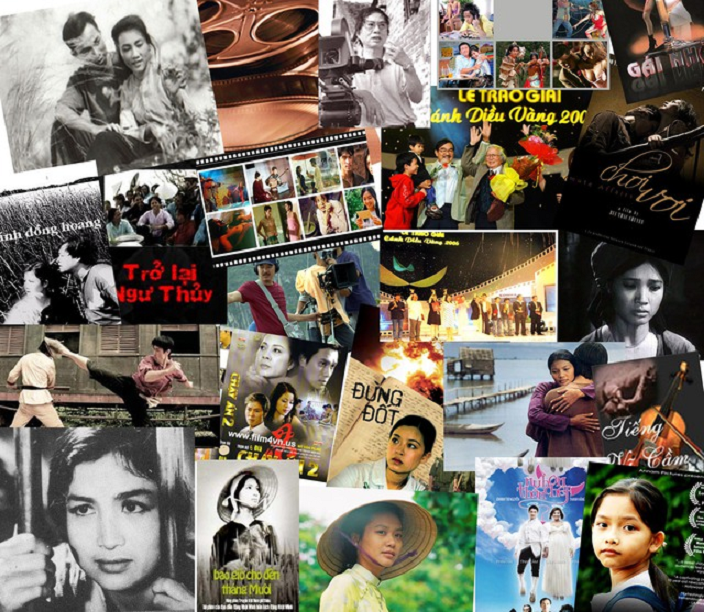
Despite being hailed as one of Asia's fastest-growing film markets, Vietnamese cinema primarily consists of "breakthrough" films, and still grapples with a host of unresolved challenges.
A recent assessment by the US magazine Deadline highlights the industry's progress, attributing it to a sizable audience base and numerous highly profitable projects.
"For Vietnamese audiences, familiar, emotionally rich stories in Vietnamese are preferred," said producer Khoa Nguyễn.
However, the market remains unstable and lacks sustainability.
Currently, a few Vietnamese films achieve outstanding revenue, setting new records of hundreds of billions of đồng, while dozens of other films suffer heavy losses.
Concerns about the significant gap between successful and disastrous films have made many filmmakers and investors hesitant.
In the current economic context, raising capital and attracting investors to "pour money" into film projects face numerous difficulties and challenges for filmmakers.
The "big players" outside the industry, often real estate companies, consumer brands, and entertainment units, who once showed interest in investing tens of billions of đồng into film making, have now completely withdrawn or proceed cautiously with meticulous risk assessments.
Many Vietnamese filmmakers said that previously, raising funds for Vietnamese films was difficult, but now, after the COVID-19 pandemic, finding funds for film production has become even harder in the overall challenging situation.
After the film Mai by Trấn Thành grossed nearly VNĐ550 billion with over 6.5 million tickets sold, becoming the highest-grossing film in the history of cinema in Việt Nam, producer Nguyễn Hữu Tường Vi noted: "Looking at South Korea with a population of over 51 million, the highest ticket sales was 17.6 million tickets for the film The Admiral: Roaring Currents in 2014. With a population of over 100 million in Việt Nam, there is still a lot of room for development in Vietnamese cinema.”
“The film industry has not been recognised as a potential economic sector, leading to a shortage of investment in cinema," Vi said.
Without many investors putting capital into filmmaking, Vietnamese cinema will not have large-scale films with massive investment, but rather, only medium-scale or small films.
The "difficult problem" of how to "make ends meet" has posed many challenges for film crews.
Director Victor Vũ, when making the film The Last Wife, admitted that "to ensure safety for partners and investors", he set the budget "at a level acceptable to investors, not overly ambitious, to be able to secure funding".
The fact that Vietnamese films are criticised as disasters in terms of quality and suffer heavy losses has somewhat affected the confidence of investors, making it difficult for many films to raise funds.
'Scarce skilled' human resources
Film producers also recognised that the most worrying aspect of Vietnamese cinema today is the severe lack of creative talent and skilled individuals, most of whom are not trained correctly.
"The big weakness of Vietnamese films is the severe shortage in key positions such as directors, screenwriters, and actors,” said director and film producer Võ Thanh Hòa.
To raise the overall quality of Vietnamese films, there must be investment in developing human resources, funding, and equipment because the number of skilled professionals in various aspects is still very scarce, added Hoà.
According to producer and director Hằng Trịnh, the human resources of Vietnamese cinema are not large enough, and filmmakers do not have many choices in selecting actors and other team members for new and distinctive projects compared to previous works.
Therefore, right now, the main issue is to train more talents in the film industry, and only then can the market truly develop sustainably.
The appearance of Trấn Thành in the film industry is a strong "boost" for the entire market.
However, the only "billion-dollar director" is Trấn Thành himself, while hovering below the billion-dollar mark are Lý Hải, Nguyễn Quang Dũng, Victor Vũ, Charlie Nguyễn, Vũ Ngọc Đãng, and Phan Gia Nhật Linh along with a few names that are building credibility with audiences such as Võ Thanh Hòa, Trần Hữu Tấn, and Trịnh Đình Lê Minh.
The public and the Vietnamese film industry need more prominent names and more filmmakers to create long-term momentum. VNS